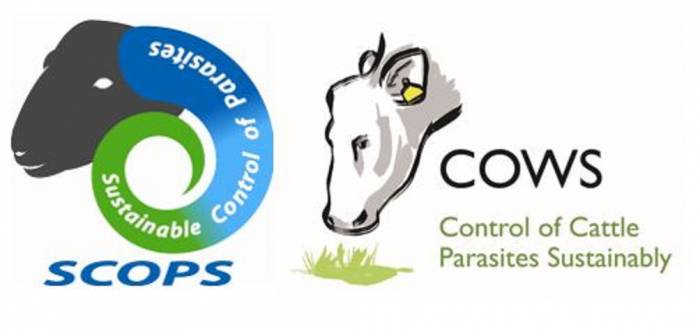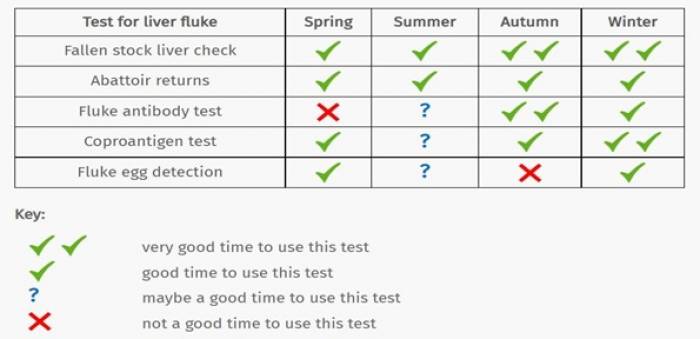10th December 2021
While the risk of liver fluke remains low for much of the UK this season, livestock farmers need to keep their guard up again in what is becoming a less predictable parasite challenge. That is the warning from the Sustainable Control of Parasites in Sheep (SCOPS) and Control of Cattle Worms Sustainably (COWS) groups as we head into winter.
Experts from the two groups say this unpredictability means diagnostic testing is critical to make sure animals aren’t treated too soon, or unnecessarily, or miss a vital treatment.
John Graham Brown of Liverpool University speaks on behalf of both groups: “It is really important to repeat testing until the risk period is over. A negative test does not mean you can sit back and relax. Plan to repeat tests in three to four weeks’ time to make sure you don’t get caught out. Sheep are most likely to be seriously affected by acute liver fluke disease in the autumn and early winter, which means they are the priority for testing and also the best indicator of the presence of liver fluke on the farm.”
Matt Colston, a vet with Elanco Animal Health, says the recent change in weather, becoming wet and relatively mild in some areas, will favour the mud snail that is critical to the liver fluke lifecycle. He says: “This means we could see an increase in infection rates in the coming weeks. The mild weather has also meant that cattle have tended to stay out longer, potentially exposing them to more risk.”
Rebecca Mearns is Sheep Veterinary Society President and Biobest Senior Veterinary Advisor. She says: “So far this season we have seen positive results in tests on faeces in some areas, though many samples received have tested negative as the liver fluke stages in the cattle and sheep are not yet mature enough to be detected by these tests. I would also urge livestock farmers to take note of feedback on liver rejections from the abattoir and always investigate any deaths with a post-mortem examination to check for evidence of fluke in the liver.”
This is echoed by Michele Macrelli of APHA, Carmarthen, where there has been a significant number of positive test results for farms in South Wales, underlining the regional variation in risk this year.
There are a number of tests and means of monitoring liver fluke available to farmers, as shown in the table. The most appropriate one to use varies according to the season, reflecting the maturity of the liver fluke at different times of year. Farmers are urged to talk to their vet or adviser about the test that is best for them, and which class of stock will give them the most useful information.
Source: Elanco
If the tests indicate that stock do need to be treated, remember to choose a product that is appropriate for the maturity of the liver fluke. Options can be found at www.scops.org.uk/internal-parasites and www.cattleparasites.org.uk/liver-fluke-and-rumen-fluke.
SCOPS and COWS urge farmers, vets and advisers to note that the withdrawal of Trodax from the market means there are now only four actives available for sheep, and two of those are only adulticides (i.e. they only kill adult fluke). There are five actives in cattle, three of which are adulticides. However, there are flukicides with nitroxynil as the active ingredient available outside the UK and it is possible to import these under a Special Import Certificate (SIC) submitted by a veterinary surgeon to the VMD. For more details consult the Veterinary Medicines Directorate website. It is also possible to import flukicides containing rafoxanide under an SIC. However, SCOPS and COWS remind vets that they should seriously consider their rationale for requesting import of rafoxanide products. Rafoxanide and closantel are closely related active substances of the salicylanilide class, with similar chemical structures and modes of action. Vets are reminded that there is no evidence to suggest using closantel and rafoxanide interchangeably/on a rotational basis will successfully reduce the selection pressure for resistance to closantel. For more detail see the joint statement about rafoxanide here.
Lesley Stubbings of SCOPS says: “It can be a challenge to choose the right product, given the range of trade names and names of actives, difficulties getting hold of some items, and the added complexity of combination products. But use the expertise of your vet or adviser and make the right choice for you flock or herd.”

